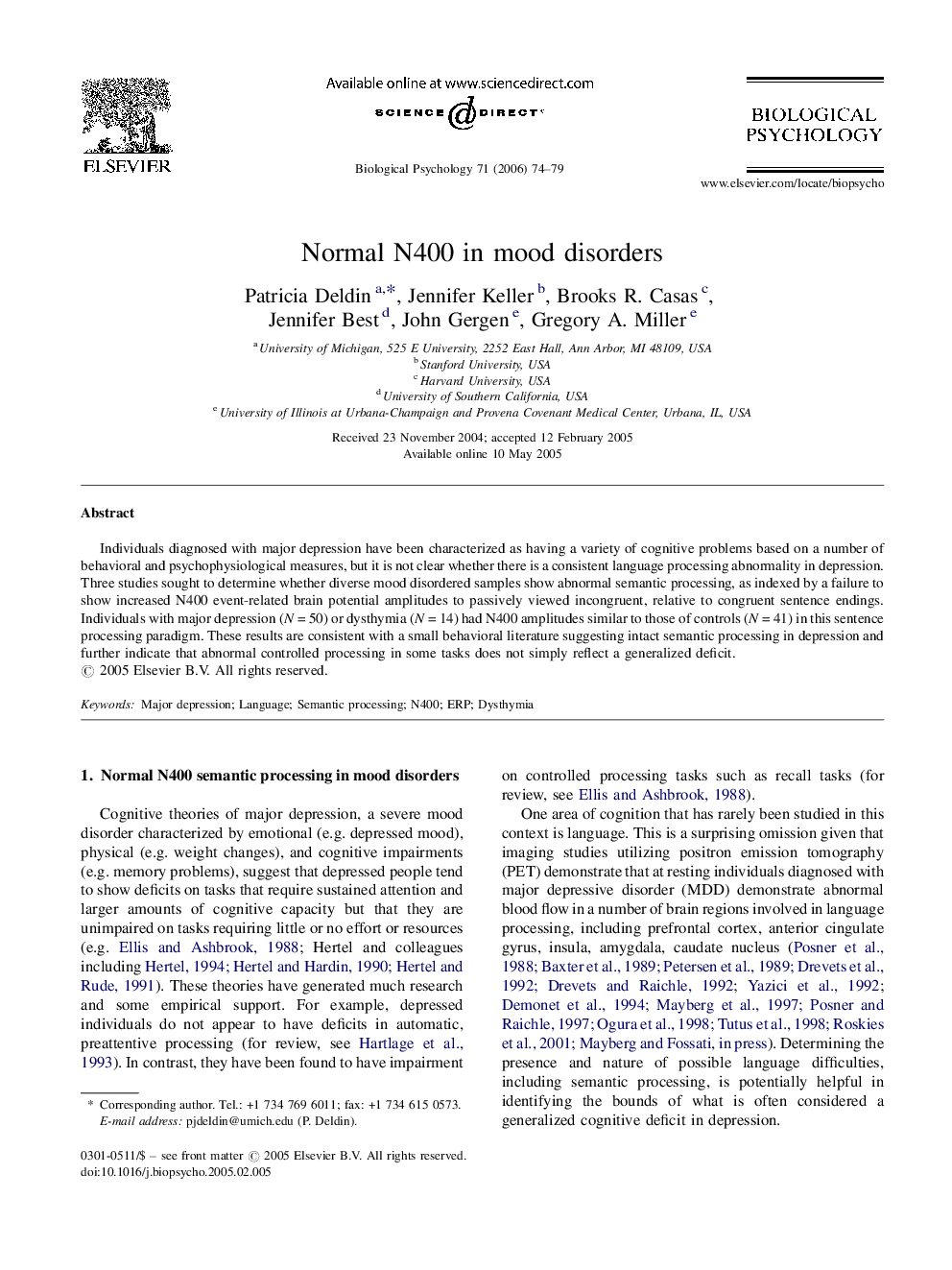| Article ID | Journal | Published Year | Pages | File Type |
|---|---|---|---|---|
| 921811 | Biological Psychology | 2006 | 6 Pages |
Individuals diagnosed with major depression have been characterized as having a variety of cognitive problems based on a number of behavioral and psychophysiological measures, but it is not clear whether there is a consistent language processing abnormality in depression. Three studies sought to determine whether diverse mood disordered samples show abnormal semantic processing, as indexed by a failure to show increased N400 event-related brain potential amplitudes to passively viewed incongruent, relative to congruent sentence endings. Individuals with major depression (N = 50) or dysthymia (N = 14) had N400 amplitudes similar to those of controls (N = 41) in this sentence processing paradigm. These results are consistent with a small behavioral literature suggesting intact semantic processing in depression and further indicate that abnormal controlled processing in some tasks does not simply reflect a generalized deficit.
